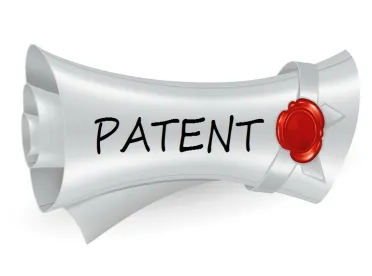Massachusetts is home to one of America’s chief innovation hubs. Yet, historically, the District of Massachusetts has seen relatively few patent cases when compared to other high-tech venues around the country. While there are several reasons that may explain this dearth of patent cases, factors many have pointed to include that a large number of patent cases filed in the district ended up taking 3 or more years to reach trial. Additionally, patent case schedules issued in the district were often criticized as slowly paced and lacking in certainty. And so plaintiffs looking for a quick and certain resolution tended to file their cases elsewhere.
Change appears to be here, however, as effective June 1, 2018, the District of Massachusetts amended its Local Rule 16.6 to provide for mandatory patent rules and scheduling. The prior local rules suggested a schedule for patent proceedings that parties could use in their scheduling orders, but left it up to the parties to agree to certain deadlines in the proposed order. The amended rules, however, require that the assigned judge set a trial date that is within 2 years of the initial scheduling conference (a court hearing that usually takes place within months of the complaint filing), and set certain other patent-specific deadlines on dates calculated from the initial scheduling conference date.
The new Massachusetts patent rules appear to be relatively plaintiff-friendly. While they require that the patent plaintiff provide its infringement contentions within 3 weeks after the initial scheduling conference, they also mandate that the patent defendant provide not only its patent invalidity contentions, but also its non-infringement contentions and a production of its technical documents and source code within a short 9 weeks after the initial scheduling conference. And these deadlines appear to be strict; parties may not amend these initial patent disclosures in the case without a court order and a showing of good cause. We provide some of the highlights of the new patent rules below.
Claim Construction Hearing and Trial Scheduling
The new rules require that trial be scheduled to be held within 2 years of the initial scheduling conference. This requirement is a significant change in a district that was notorious for much longer times to trial.
Although there is no set deadline by which the Court must make its claim construction ruling, under the rules the claim construction hearing must be held within 9 months of the initial scheduling conference. L.R. 16.6(c)(2). The exchange of the parties’ lists of claim terms for claim construction must be made no later than 12 weeks after the initial scheduling conference. L.R. 16.6(e)(1)(A).
Importantly, the parties may jointly present no more than 10 claim terms for construction, absent a showing of good cause. L.R. 16.6(e)(1)(C). Factors supporting good cause include the complexity of the patented technology, the number of asserted claims and patents, the lack of relation among the asserted patents, the number and complexity of invalidity defenses, and the number and diversity of accused products or methods.
Amendments to Preliminary Patent-Related Disclosures
Preliminary patent-related disclosures by the patentee – including infringement claim charts – must be made no later than 3 weeks after the initial scheduling conference. L.R. 16.6(d)(1). In turn, the accused infringer’s preliminary patent-related disclosures – including a production of documents and/or source code describing the accused products, non-infringement claim charts and invalidity contentions – must be made no later than 9 weeks after the initial scheduling conference. L.R. 16.6(d)(4).
These preliminary patent-related disclosures may be amended and supplemented only by leave of court upon a timely showing of good cause. L.R. 16.6(d)(5). Furthermore, according to the rules, “[t]he duty to supplement discovery responses does not excuse the need to obtain leave of court to amend disclosures.”
Fact and Expert Discovery
The close of fact discovery is set within 15 months of the initial scheduling conference, or 60 days after the entry of the Court’s ruling on claim construction, whichever is later. L.R. 16.6(c)(4). The close of expert discovery is set within 18 months of the initial scheduling conference, or 90 days after the close of fact discovery, whichever is later. L.R. 16.6(c)(5).
The amended L.R. 16.6(d)(6) now provides for a default protective order for “documents and information that either party believe are confidential,” including the preliminary patent-related disclosures, until a case-specific protective order is entered. Relatedly, L.R. 16.6(d)(7) permits any party to challenge the confidentiality designation of the required patent-related disclosures.
The following chart sets forth the schedule of events according to the amended L.R. 16.6 for patent proceedings:
|
|
Event |
Deadline |
|
1. |
Patentee’s preliminary patent-related disclosures
· infringement claim charts |
3 weeks after initial scheduling conference (“ISC”)
|
|
2. |
Meet and confer concerning patentee’s preliminary patent-related disclosures |
6 weeks after ISC |
|
3. |
Accused infringer’s preliminary patent-related disclosures
· technical documents |
9 weeks after ISC |
|
4. |
Exchange of claim terms and proposed constructions |
12 weeks after ISC |
|
5. |
Meet and confer on exchanged claim terms |
13 weeks after ISC |
|
6. |
Joint statement of number of claims and terms to be construed, and joint claim construction chart |
14 weeks after ISC |
|
7. |
Opening claim construction briefs (parties file simultaneous briefs) |
17 weeks after ISC |
|
8. |
Claim construction expert depositions |
20 weeks after ISC |
|
9. |
Responsive claim construction briefs |
23 weeks after ISC |
|
10. |
Claim construction hearing |
9 months after ISC |
|
11. |
Disclosure of written opinion or oral advice of counsel |
4 weeks after entry of the Court’s claim construction ruling |
|
12. |
Fact discovery cut-off |
15 months after ISC, or 60 days after entry of the Court’s claim construction ruling, whichever is later |
|
13. |
Expert discovery cut-off |
18 months after ISC, or 90 days after close of fact discovery, whichever is later |
|
14. |
Trial |
24 months after ISC |
The new patent rules set forth a more predictable schedule that is expected to make patent plaintiffs more comfortable in Massachusetts. Moreover, requiring defendants to produce their invalidity contentions within months of the initial scheduling conference, and without the ability to amend such contentions absent a showing of good cause, places the burden on defendants to very quickly get up to speed on the case. Time will tell as we see how the new rules are implemented by the Court, but based on the face of the rules, it appears that Massachusetts is poised to become a faster and more plaintiff-friendly venue for patent litigation. A copy of the amended Local Rule 16.6 is here.




 />i
/>i
